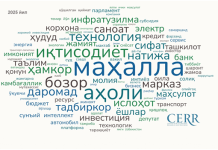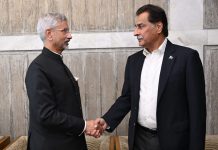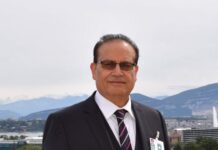The International Monetary Fund (IMF) has approved a release of one billion dollars for Pakistan, a move that has been welcomed by the government as a much-needed boost to a faltering economy. But amidst official optimism and public relief, the uncomfortable truth remains: this is not a moment to celebrate, but one for serious introspection.
At best, the IMF disbursement is a band-aid over a gaping economic wound. Yes, it may help stabilize the rupee temporarily, ease balance of payments concerns, and signal some international confidence. But we must ask: what are we really celebrating? This is borrowed money, not earned capital. Pakistan’s foreign reserves remain heavily reliant on external deposits and loans — whether from Saudi Arabia, the United Arab Emirates, or the IMF. In contrast, neighboring India has built a robust foreign exchange reserve base of over $640 billion as of 2024, most of which is sourced from strong exports, remittances, and a diversified economy. Pakistan, on the other hand, barely scrapes together reserves that can cover a few weeks of imports.
This situation is not just dire — it is humiliating. As a nation, we have become accustomed to rejoicing over bailouts, celebrating loans as if they were achievements. It reflects a deeper malaise in our political and economic culture. Borrowing is not inherently shameful — every country does it. But perpetual reliance on external help, with no signs of internal structural reform or self-reliance, certainly is.
It is high time we changed course. Pakistan must prioritize increasing its exports by investing in value-added industries, supporting small and medium enterprises, and improving trade facilitation. Simultaneously, we need to curb unnecessary imports, especially luxury goods that drain precious foreign exchange. A comprehensive strategy for import substitution is long overdue.
This economic stagnation is particularly dangerous given the current geopolitical tensions, especially with India. A war-ridden country cannot afford to have an economy this fragile. Economic strength is as much a tool of national defense as military capability. Instead of investing in sustainable growth, innovation, and education, we are stuck in a cycle of political instability, administrative incompetence, and short-term fixes.
To reverse this trend, we must accept some hard truths. Political instability is poison for economic development. Investors — both foreign and domestic — shy away from uncertainty. The constant infighting, polarization, and frequent changes in policy direction deter long-term investment and destroy any chance of continuity in economic planning. A national consensus on economic priorities, shielded from political fluctuations, is essential.
The release of one billion dollars may keep Pakistan afloat for a while, but unless we address the root causes of our economic fragility, we will continue to lurch from one bailout to the next. Let this not be a moment of celebration, but a wake-up call. We must change our mindset, our policies, and most importantly, our priorities — from surviving on loans to thriving through self-reliance.
By Ansar M Bhatti/daily Islamabad Post

















